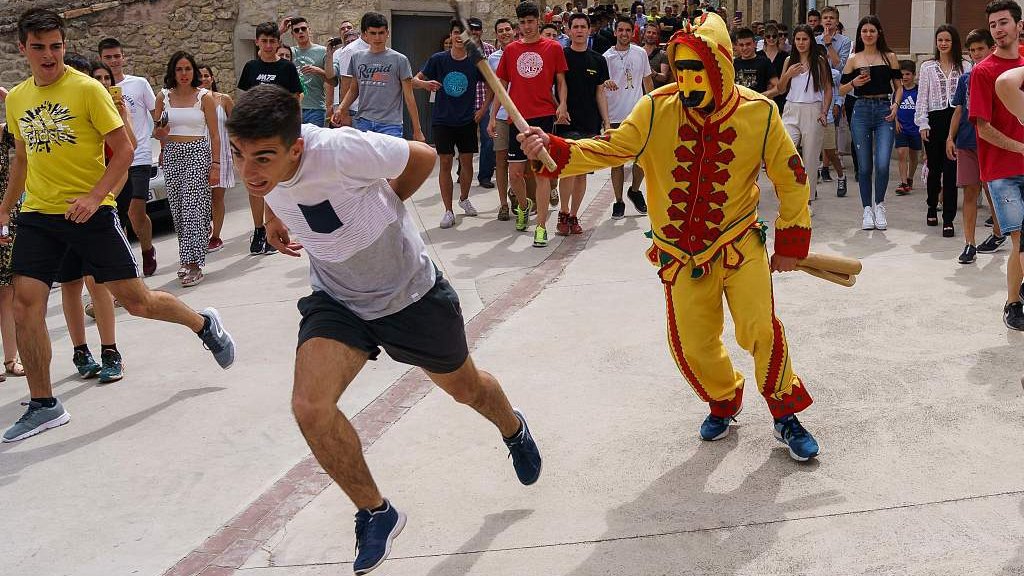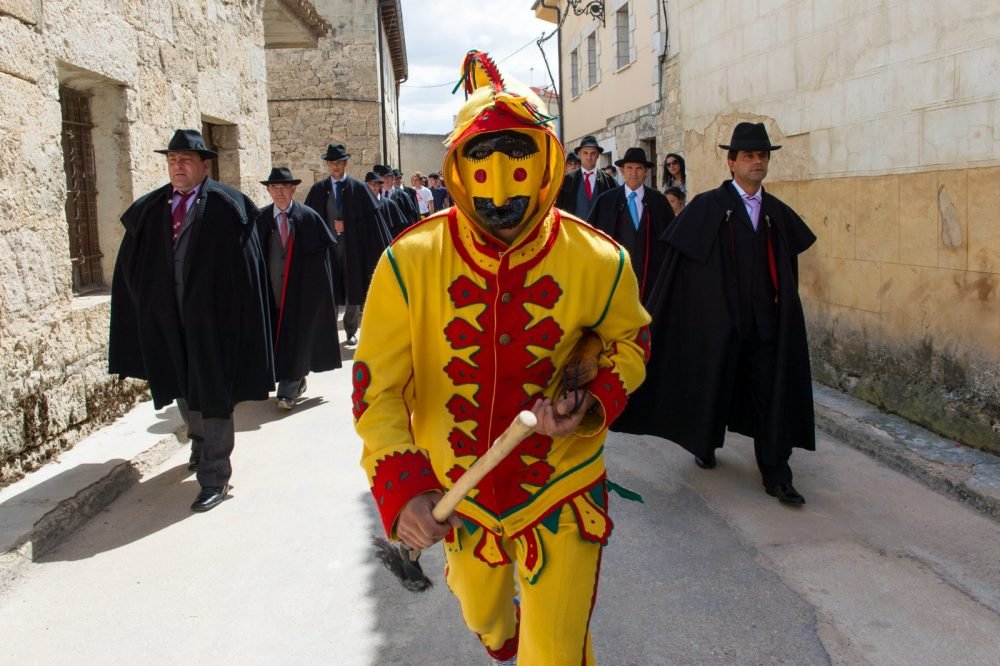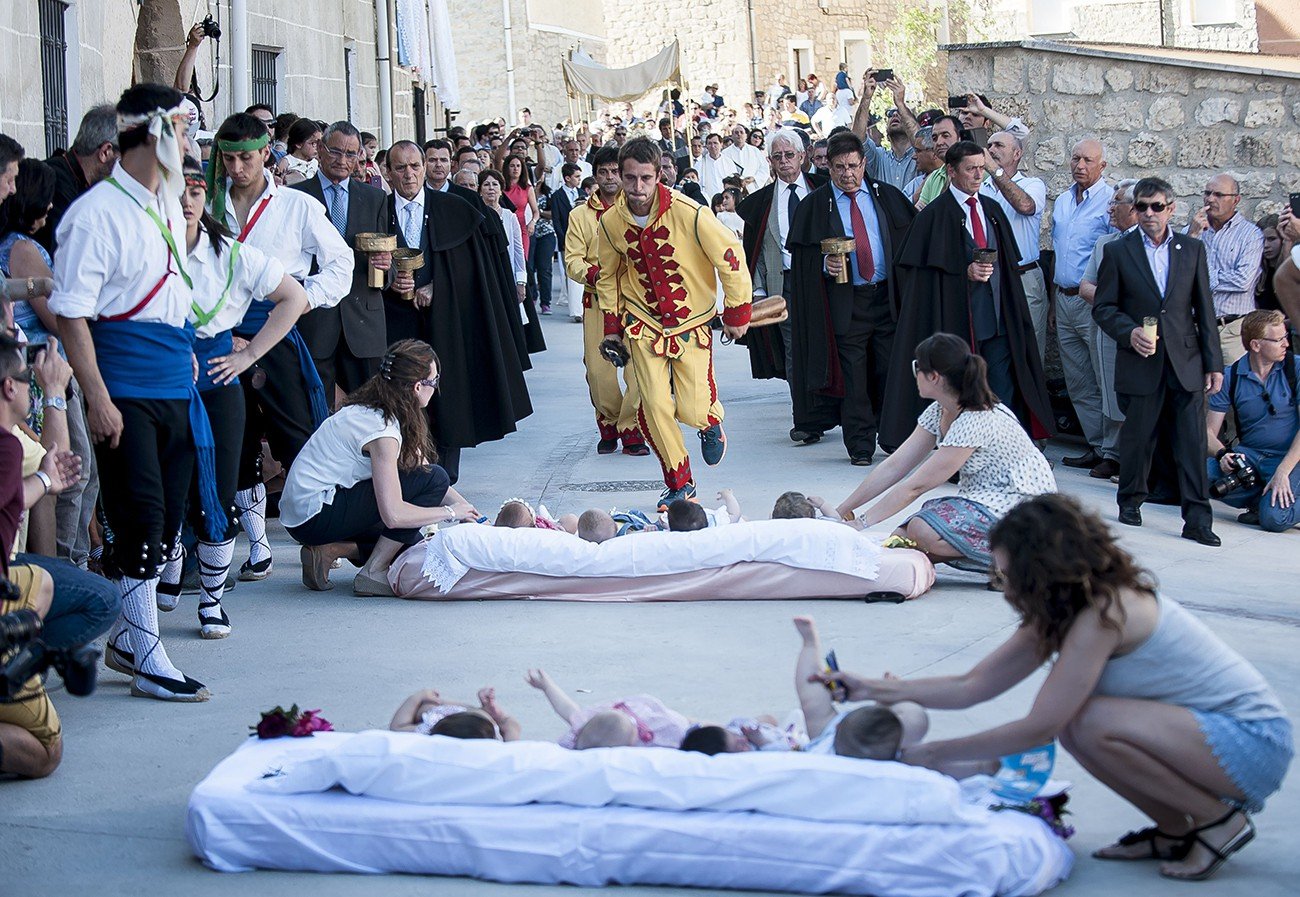One of the traditional festivals of Spain, baby jumping, appeared back in 1620. It first celebrated the Catholic feast of Corpus Christi in Castrillo de Murcia, a village in the municipality of Sasamón in the province of Burgos.
This baptism has been dated to the 17th century and has roots in paganism.
In this, any newborn addition to the family is brought on to this festival, also named the El Colacho.
The festival is celebrated all over the parts of Spain for the Catholic festival of Corpus Christi. However, on this special date, many other cities and towns have amazing ceremonies and follow different kinds of other traditional norms of revealing and enjoying themselves.

Activity to celebrate the baby jumping fest.
The newborns are laid on the ground in swaddling clothes and adult males are outfitted in devils attire and jump over the infants.
Red and yellow-masked -devils move on the streets hurling insults at villagers and whipping them with a horsetail attached to a stick. And When drums beat and announce the arrival of the black-clad atabalero, pious men who have come to drive out evil, el salto del Colacho—the flight of the devil—begins.
This is believed, It cleanses them from all evil doings. But the question is, who is protecting the babies from the example being set by the adults begs to be asked but who are we to doubt this traditional combination of religion and Spanish folklore, which proves to be great fun, if not a little scary, to watch.

Spectators lining the streets will also berate Colacho to ward off their bad luck for the upcoming year. Thereafter, the babies are sprinkled with some rose petals and promptly handed over to their parents.
Who would not like being blessed with receiving this protection during their early childhood and having lived life looking over their shoulder waiting for bad things to happen or illness to strike can, in their adultness, choose to take part in an exercise of jumping through fire on 21st December in Granada, known as the Hogueras. This is to protect them from illness.

Traditionally the festival only includes newborn babies from the local village, but nowadays people from around the world have traveled to northern Spain to participate to celebrate the festival.
The festival takes place on the first Sunday after Corpus Christi. That’s How its date keeps differing accordingly.





